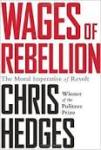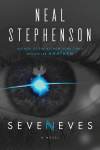 Joel Simon
Joel Simon
November 2014
In 1787, the new U. S. Constitution was immediately amended, thanks to anti-federalist opposition to the creation of a too-powerful national state. The very first of these amendments guaranteed — along with freedom of speech, assembly, and religion — freedom of the press.
Press freedom was central to the informed oligarchy that the racially and economically privileged framers were actually trying to institute. And it’s even more important to the creation and maintenance of a true democracy. As Jefferson observed, only a well-informed citizenry can be trusted with its own government.
(I struggled to resist the temptation to make reference at this point to the results of the U.S. midterm elections, which can be understood by the rational mind only as a failure to heed Jefferson’s prescription. As you can see, I couldn’t resist.)
The New Censorship: Inside the Battle for Media Freedom centres its richly-detailed depiction of the state of world journalism on a belief in the need for a free press, and the report card it presents on the vitality, and the viability, of press freedom is not encouraging.
Continue reading →
 Wages of Rebellion may be Chris Hedges’ best book.
Wages of Rebellion may be Chris Hedges’ best book.








